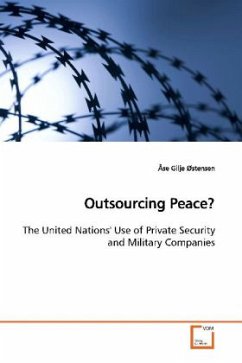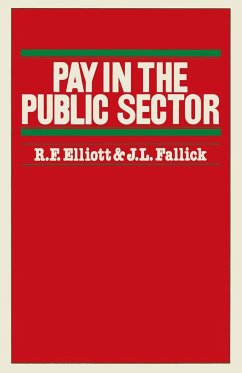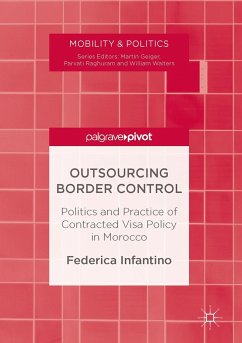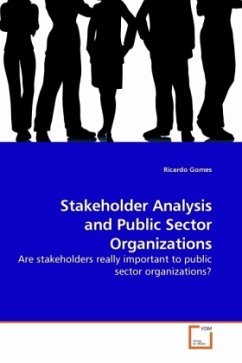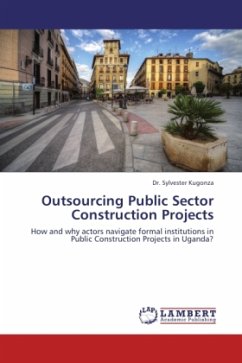
Outsourcing Public Sector Construction Projects
How and why actors navigate formal institutions in Public Construction Projects in Uganda?
Versandkostenfrei!
Versandfertig in 6-10 Tagen
52,99 €
inkl. MwSt.

PAYBACK Punkte
26 °P sammeln!
The thesis examines how the process of outsourcing of public construction projects is influenced by institutions and why. It extents debate beyond comparaisions between outsourcing and reliance on own forces (force account) to explain how actors navigate formal and informal institutions in outsourcing process. It examines why results differ from one socio-political context to the other using the case of Uganda. An analytical framework for process-tracing that integrates institutional and social capital theories is deployed for analysis of actors decision-making in outsourcing process drawing p...
The thesis examines how the process of outsourcing of public construction projects is influenced by institutions and why. It extents debate beyond comparaisions between outsourcing and reliance on own forces (force account) to explain how actors navigate formal and informal institutions in outsourcing process. It examines why results differ from one socio-political context to the other using the case of Uganda. An analytical framework for process-tracing that integrates institutional and social capital theories is deployed for analysis of actors decision-making in outsourcing process drawing paralels at central and local government contexts. Using this framework the thesis argues that actors in private and public sectors simultaneously pursue material gains as well as social capital investments while trying to minimize their transaction costs, a phenonmenon that leads to forum shopping between formal and informal institutions. Empirical findings indicate that informal arrangements tend to dominate the process of outsourcing in Uganda more than the formal institutions in place and suggests to actors to take cognisance of informal institutions to attain higher effectiveness.



